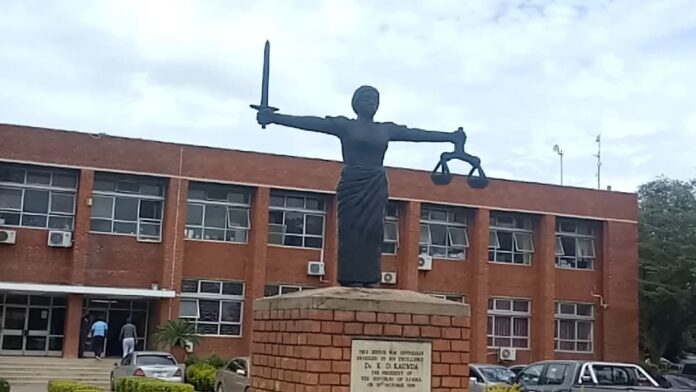THE Law Association of Zambia (LAZ) has resolved to petition the High Court to review the constitutionality of provisions under the newly enacted Cyber Security Act.
The Association has argued that Act infringes on the rights and freedoms of citizens and undermines a free press.
In a statement issued yesterday, LAZ president Lungisani Zulu noted that numerous provisions in the law restrict civil liberties, hinder press freedom, and have the potential to weaken democracy.
Mr Zulu noted that Section 5 of the Act, which prohibits the unauthorised disclosure of data relating to critical information effectively criminalising the receipt, communication, and exchange of ideas without state approval.
“Further, Section 6 prohibits the unauthorised possession of data relating to critical information or critical information infrastructure, making it illegal to hold opinions or information connected to public safety, public health, economic stability, national security, international stability, and sustainability without State authorization,” Mr Zulu said.
He also pointed out that Section 19 prohibits the transmission of unsolicited deceptive electronic communications, with Section 19(1)(d) criminalizing the falsification of headers in electronic communications intended to deceive or mislead users.
“Potentially, journalists who publish stories under a headline considered misleading by the State could be prosecuted for falsifying headers with intent to deceive, carrying a penalty of up to seven years’ imprisonment upon conviction,” he added.
Mr Zulu further noted that Section 21 prohibits the unlawful disclosure of details of investigations under the Act, making it illegal to share such information without State authorization.
He warned that the subjective nature of the offences contained in the Act poses a serious risk of the State using them to suppress dissent and opposing views under the guise of preventing false communication.
“Section 24(1)(b) elevates the offence of inciting or attempting to incite ethnic divisions among the people of Zambia to an act of terrorism, punishable by life imprisonment,” he said.
Mr Zulu said while LAZ condemns tribalism and the incitement of ethnic divisions, he cautioned against the potential weaponization of the provision to target political opponents.
“Through this provision, the State can conveniently send all those with dissenting views to life imprisonment in the name of cyber terrorism,” he said.
And the Association also expressed concern that the law makes no exemption for the press to freely disseminate computer data concerning matters of public safety, health, economic stability, national security, international stability, and sustainability effectively criminalising the distribution of critical information by journalists without State approval.
Mr Zulu also noted that the localisation of the Zambia Cyber Security Agency within the Office of the President, operating under the general direction of the President rather than as an independent institution raises serious governance issues.
“It is LAZ’s view that effective laws must strike a careful balance, ensuring that security measures are proportionate, necessary, and subject to robust oversight mechanisms that protect constitutional freedoms,” he said.
Mr Zulu said LAZ has since resolved to petition the High Court to review the constitutionality of provisions in the Cyber Security Act that infringe on citizens’ rights and press freedom.

